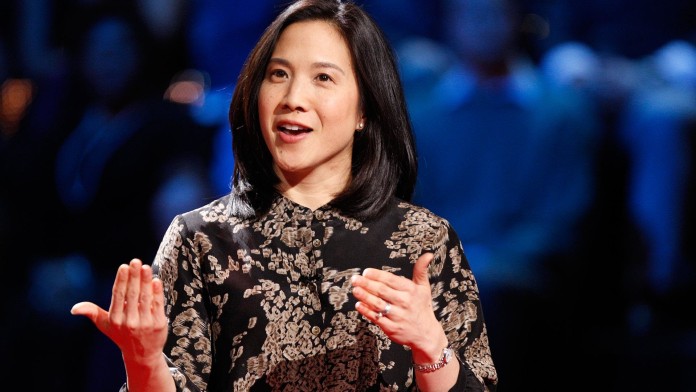Angela Duckworth started in a management consulting company and then made a big leap into teaching in a 7th grade math classroom in a NYC public school. After several years, she found that is wasn’t the “smartest” kids, the kids with the highest IQs, doing well in her classes. She wanted to know what it was. She wanted to know what motivated success in students from a psychological perspective.
So she went to grad school and began a study.
Duckworth was sure that doing well in life requires more than the ability to learn quickly, so she took her thesis on the road and asked the same question in very different arenas, “who is successful here and why?”
At West Point Military Academy, she measured who would stay and who would drop out.
At the National Spelling Bee, she measure which kids would make it furthest in the competition.
And after all of this research, one characteristic emerged as the significant factor to predicting longevity in success. And it wasn’t social intelligence, good looks, physical health, or IQ.
It’s grit. Duckworth defines grit as passion and perseverance for long-term goals. It’s about having stamina and sticking with your future for the long haul. It’s about working really hard to make that future a reality.
Life is a marathon, not a sprint.
When looking at grit as a quality in Chicago’s at-risk students, Duckworth found that grit beats out standardized curriculum test markers, family income, and even how safe kids feel at school as a measurement for their likelihood to graduate.
Grit matters in schools. The problem is that we don’t yet understand how to build and promote grit as a characteristic.
How do we instill it as teachers, parents, and mentors? How do we motivate for the long run?
Talent doesn’t make you gritty. Talent is either unrelated or even inversely related to grit.
Stanford University developed a theory called Growth Mindset which states that the ability to learn is not fixed. It can change with your effort. When kids read and learn about the brain and how it changes and grows in response to challenge, kids don’t believe failure is a permanent position. They persevere.
So how do we find grit and incorporate it into our teaching? We need to take our best ideas and test them. We need to measure how we’ve been successful and to measure how we fail in order to learn. We need to be gritty about getting our kids grittier.

![5 Reasons You Should Travel Alone Airplane [image source: chau nguyen/ http://thedevilhatessweatpants.blogspot.com.au ], crowd ink, crowdink, crowdink.com, crowdink.com.au](https://crowdink.com/wp-content/uploads/2016/08/Chau-airplane-218x150.jpg)




























![5 Reasons You Should Travel Alone Airplane [image source: chau nguyen/ http://thedevilhatessweatpants.blogspot.com.au ], crowd ink, crowdink, crowdink.com, crowdink.com.au](https://crowdink.com/wp-content/uploads/2016/08/Chau-airplane-100x70.jpg)


